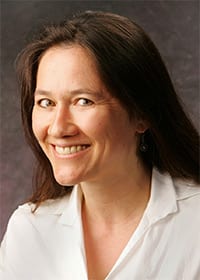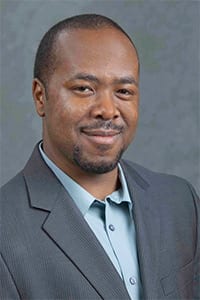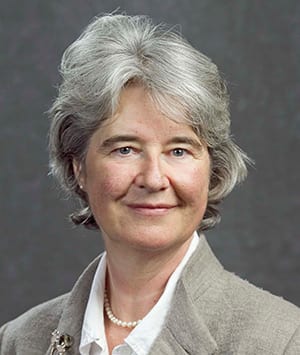By Andrew Cohen
So much for going quietly into the night. In the final days of its recent term, the U.S. Supreme Court confronted pivotal issues—abortion, immigration, affirmative action and gun rights, to name a few—and issued major decisions.
With the February death of Justice Antonin Scalia and the Senate’s refusal to hold confirmation hearings for replacement nominee Merrick Garland, the court tackled these issues with a diminished roster—and with more scrutiny than usual. Below, four Berkeley Law scholars, all noted experts in their respective fields, assess the reasoning and implications of the latest key rulings.
Access to abortion services

The court’s most dramatic verdict rejected a Texas law that would severely restrict access to abortion services in the state. Hailed as its most important abortion decision in decades, the 5-3 ruling in Whole Woman’s Health v. Hellerstedt could deter other states from passing similar laws—and signal that abortion rights will be protected regardless of who fills Scalia’s seat.
After two decades of myriad state-level restrictions on abortion provision and access, “the court finally drew a line indicating that there are, in fact, regulations that unconstitutionally burden the abortion right,” said Jill Adams ’06, executive director of Berkeley Law’s Center on Reproductive Rights and Justice.
Justice Stephen Breyer’s majority opinion asserted that restrictions alleged to help Texas protect women’s health in fact constituted unreasonable obstacles for those seeking abortions—and an undue burden on their constitutional right to do so. While the ruling has nationwide consequences, Adams cautioned, “It does not automatically strike down similar provisions in other states that target abortion providers with excessive, medically unnecessary regulations under the guise of protecting women’s health.”
Just days after the ruling, the court denied appeals from Wisconsin and Mississippi challenging lower court opinions that had struck down requirements similar to those rejected in Whole Woman’s Health. With more than 1,000 state regulations restricting access to abortion care throughout the country, however, Adams said eliminating such requirements “will not come close to restoring the abortion right to its original status declared in Roe v. Wade.”
Today’s state-by-state patchwork of restrictions includes bans on public and private insurance coverage, mandatory delays and counseling requirements that “continue to stigmatize the practice and push the right out of reach for increasing swaths of the population,” Adams said. “While we celebrate this major victory, we recognize that for some women, legal restrictions, poverty, practical barriers and cultural preferences will continue to make clinic-based abortion care an unavailable or unacceptable method for ending a pregnancy.”
Setback for immigration reform

The court’s shortest ruling—one sentence—dealt a huge blow to President Obama’s executive actions on immigration, which would have temporarily shielded an estimated 3.5 million undocumented migrants from deportation and authorized them to legally work in the U.S, pursuant to preexisting regulations. The 4-4 deadlock in United States v. Texas maintained an appeals court ruling that blocked Obama’s programs, quashing hope of their taking effect during his presidency.
Under his Deferred Action for Parents of Americans and Lawful Permanent Residents (DAPA) plan, adults in the U.S. illegally could receive a renewable but revocable three-year reprieve from deportation if they meet residency and other requirements and have children who are U.S. citizens or lawful permanent residents. Obama also sought to expand the existing Deferred Action for Childhood Arrivals (DACA) program that grants approved applicants a two-year reprieve from deportation if they arrived in the United States as children under the age of 16.
Professor Leti Volpp, who teaches immigration law, did not anticipate “the court’s failure to issue any guidance given the magnitude of the decision and the legal questions left unresolved. That it took the court so long to issue what ended up being a one-sentence affirmance suggests that the justices struggled to try to reach a different result, but failed.”
Immigration scholars and activists are now suggesting these tactics for the administration: a moratorium on deportations, continued individual grants for deferred action requests, presidential pardons, Temporary Protected Status for those fleeing persecution and violence in Central America and Mexico, and funded programs to help immigrants obtain legal status for which they are already eligible. “Only this last approach would actually create a secure legal status for undocumented immigrants, but each idea should be considered,” Volpp said.
This week, the federal government requested a rehearing by the Supreme Court. Even if granted, it would probably not be scheduled until a ninth justice is confirmed—presumably after a new president takes office. If a rehearing is not granted, Andrew Hanen, the district court judge in the case, is expected to strike down both DAPA and the expansion of DACA. “The government could appeal that decision to the Supreme Court, but any ruling would not likely come until 2018 at the earliest,” Volpp said.
Affirming affirmative action

In Fisher v. University of Texas at Austin, the court held that the school’s race-conscious admissions program—in use when white plaintiff Abigail Fisher unsuccessfully applied to the school in 2008—is lawful under the Constitution’s Equal Protection Clause. The ruling delivered a major victory for affirmative action supporters.
Written by Justice Anthony Kennedy, the majority opinion upheld campus racial diversity as a compelling constitutional interest. He said a university is largely defined by intangible “qualities which are incapable of objective measurement but which make for greatness.” Using only grades and standardized test scores, Kennedy explained, could exclude worthy applicants who fared poorly as a high school freshman because of family circumstances.
It marked the first time Kennedy had ever voted to uphold the constitutionality of an affirmative action plan based in any way on race. Yet Professor Bertrall Ross, an expert on affirmative action and constitutional law, said a recent concurring opinion hinted that Kennedy “might consider race-conscious government decision-making to be necessary” in certain contexts.
The ruling’s biggest surprise? “The level of judicial deference to education administrators’ determinations about the needs of diversity—and what admissions policies are necessary to fulfill that compelling state interest,” Ross said. He added that Fisher seemed to shift the burden of proof from an affirmative action program’s defender “needing to show the absence of workable race-neutral alternatives—a very difficult burden,” to a challenger “needing to demonstrate the availability of workable race-neutral alternatives.”
If subsequent cases reveal that this burden shift is not unique to Fisher, Ross believes the decision “represents a major victory for proponents of affirmative action programs. It gives universities, at the very least, much more space to develop race-conscious policies to advance the goal of diversity.”
No guns for domestic abusers

In Voisine v. United States, the court held that reckless domestic assault triggers the Lautenberg Amendment, a federal statute banning convicted domestic violence misdemeanants from possessing firearms. Two Maine men, each twice convicted of assaulting his female partner, argued that intentional—not merely reckless—force is required to invoke the ban.
However, the domestic violence law in Maine, 33 other states and Washington, D.C. allows convictions for “intentionally, knowingly, or recklessly” causing bodily injury. Justice Elena Kagan’s majority opinion stressed that when Congress passed the Lautenberg Amendment in 1996, most states’ domestic violence laws covered reckless as well as intentional actions—and continue to do so. Lecturer Nancy Lemon ’80, director of Berkeley Law’s Domestic Violence Practicum, called the ruling “a very significant victory” for abuse survivors.
“First, most domestic violence cases in the U.S. are charged as misdemeanors and those charged as felonies usually result in misdemeanor convictions due to plea-bargaining,” she said. “So any firearm prohibition based on misdemeanor abuse applies to the vast majority of convicted abusers. Also, domestic violence abusers with access to firearms often use them to terrorize or kill their partners, and are a danger to the general public as well.”
Lemon pointed to studies showing that access to firearms increases by eight times the risk of intimate partner homicide, 52 percent of female homicide victims killed by men in the U.S. are killed by a gun, and female intimate partners in the U.S. are more likely to be murdered with a firearm than by all other means combined. “In addition, abusers who possess guns tend to inflict the most severe abuse on their partners,” Lemon said.
The dissent—an unusual pairing of Justices Clarence Thomas and Sonia Sotomayor—argued that the federal statute’s “use of physical force” element does not include reckless conduct, only intentional or knowing acts. Lemon believes the majority “was very concerned about the effect the dissent’s interpretation of the statute would have: allowing anyone convicted of misdemeanor domestic violence in 34 states and D.C. to lawfully possess firearms.”